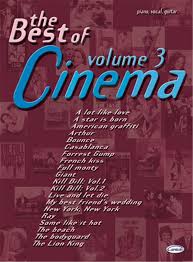Come join us now, and enjoy playing your beloved music and browse through great scores of every level and styles!
Can’t find the songbook you’re looking for? Please, email us at: sheetmusiclibrarypdf@gmail.com We’d like to help you!
Table of Contents
Francis Lai: Theme From Love Story sheet music, Noten, partitura, spartiti, 楽譜, 乐谱 Partition.

Best Sheet Music download from our Library.
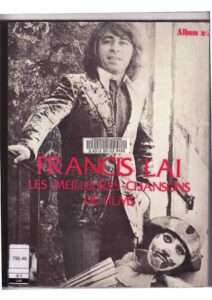
Please, subscribe to our Sheet Music Library.
If you are already a subscriber, please, check our NEW SCORES’ page every month for new sheet music. THANK YOU!
Browse in the Library:
Or browse in the categories menus & download the Library Catalog PDF:
Who Was Francis Lai?
Francis Lai (1932-2018) was a French accordionist and composer who became one of the most celebrated film composers of the 20th century. Born in Nice, France, he moved to Paris in the 1950s and became part of the vibrant music scene in the Montmartre district.
His big break came when he met and began collaborating with director Claude Lelouch. This partnership would produce his most iconic work.
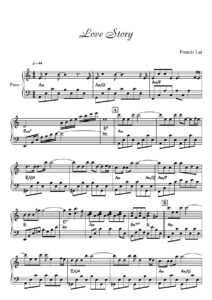
His Most Famous Work: Love Story (1970)
While Lai scored over 100 films, his career-defining moment was the score for the American film Love Story.
- The Theme: The main theme, “Where Do I Begin?”, is one of the most recognizable pieces of film music ever written. Its simple, melancholic, yet incredibly romantic piano melody captured the film’s tragic love story perfectly.
- Acclaim: This score earned Lai the highest accolades:
- Academy Award for Best Original Score (1971)
- Golden Globe for Best Original Score
- Grammy Award for Best Instrumental Theme.
The theme became a massive hit single for singer Andy Williams and has been covered countless times, cementing its place in popular culture.
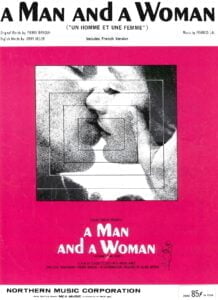
Other Key Collaborations and Films
His long-standing partnership with Claude Lelouch produced other significant scores, including:
- A Man and a Woman* (Un homme et une femme*, 1966): This was his first major international success. The score, with its catchy, breezy main theme, perfectly embodied the stylish “French New Wave” feel of the film and won the Cannes Film Festival’s Grand Prize.
- Live for Life* (Vivre pour vivre*, 1967): Another successful Lelouch collaboration, featuring a memorable and popular theme.
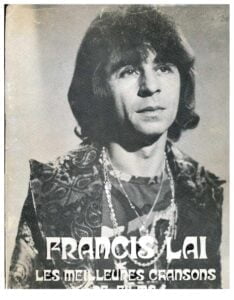
Why Francis Lai Is Still So Important
His importance extends far beyond a single award-winning theme. Here’s why his legacy endures:
1. He Pioneered a New Sound in Film Music:
Before Lai, many Hollywood scores were large, sweeping, and dramatic (like those of Max Steiner or Erich Wolfgang Korngold). Lai, along with other European composers like Michel Legrand, introduced a more intimate, melodic, and contemporary sound. He often used smaller ensembles, featuring piano, accordion, harpsichord, and strings, which felt more personal and emotionally direct.
2. The Master of Melody:
Lai’s greatest strength was his ability to compose incredibly strong, simple, and haunting melodies. A Francis Lai theme is often instantly hummable and evokes a powerful emotional response—whether it’s yearning, joy, or sadness. This skill is the bedrock of effective film composition.
3. Defining the “Romantic Drama”:
The sound he perfected for Love Story became the template for romantic films for decades. His music demonstrated how a score could wear its heart on its sleeve, directly guiding the audience’s emotions and becoming a character in the love story itself. You can hear his influence in the scores of countless romantic dramas that followed.
4. Bridging Pop and Classical:
Lai’s music was accessible and popular outside the cinema. His themes became hit records, proving that film music could stand on its own in the pop charts. This helped elevate the status of film composers and brought orchestral music to a wider audience.
5. Enduring Emotional Resonance:
Great art transcends its time. The emotions Lai captured—first love, heartbreak, joy, nostalgia—are universal. When people hear the Love Story theme today, it still evokes the same powerful feelings, proving the timeless quality of his work.
Francis Lai was not just a composer; he was an architect of emotion. He helped move film music into a more modern, intimate, and melodically driven era. His iconic score for Love Story remains a gold standard for romantic music, and his influence can be felt in the work of film composers to this day. He is important because he proved that a simple, beautiful melody could become as unforgettable as the film it accompanies.
Téléchargement des meilleures partitions dans notre bibliothèque.
Francis Lai Complete Filmography (on Wikipedia)
